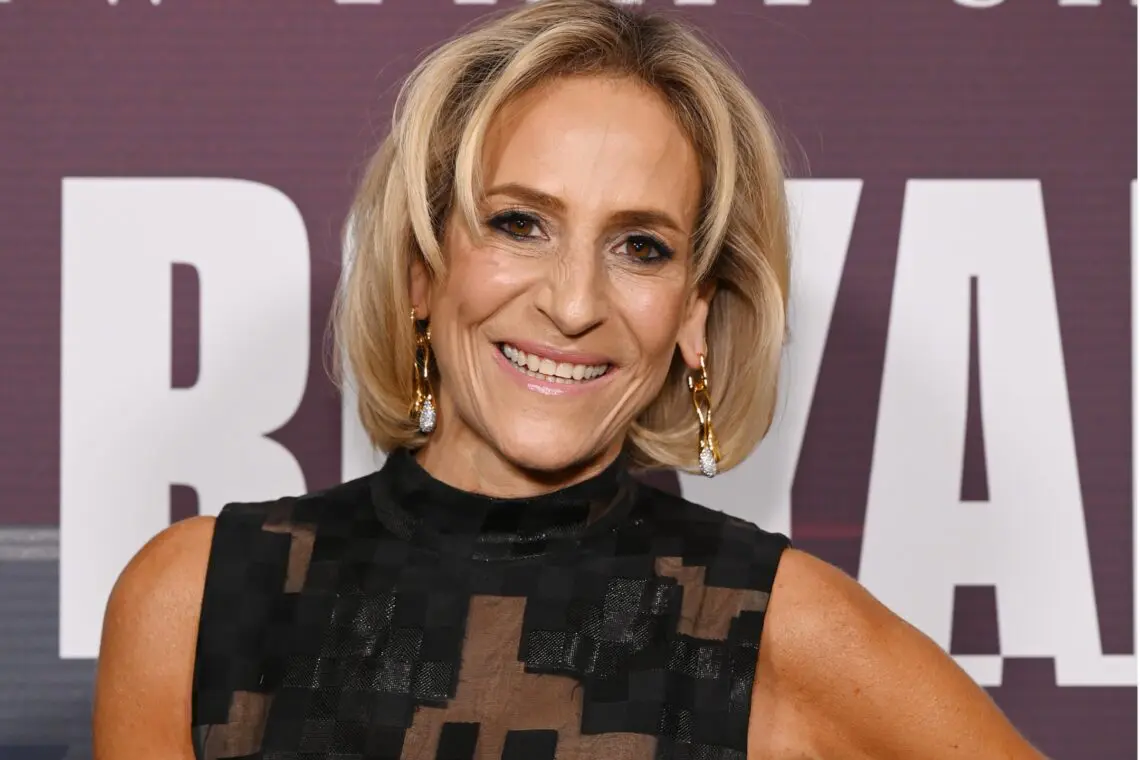Emily Maitlis faces on-air reprimand for blunt Trump remark
Not your usual election night commentary
As the U.S. election coverage unfolded live on U.K. television, viewers were treated to an unexpected burst of candid language from a renowned anchor. Emily Maitlis, a stalwart of British journalism best known for her hard-hitting interview with Prince Andrew, found herself in hot water. The incident unfolded during Channel 4’s late-night broadcast, where she and co-anchor Krishnan Guru-Murthy dissected the eventful U.S. elections.
The moment that rattled the studio
Amidst a tense discussion on Trump’s immigration policies, Maitlis’s unflinching style shone through. Addressing one of the guests, she bluntly expressed what half of America might have thought about Trump’s comments on eating cats and dogs: “This is batshit, I can’t believe what he’s saying, this is gonna be the end of him.” However, before she could proceed, Guru-Murthy swiftly interjected: “Stop swearing! I had to tell them off for swearing and then you do it,” pointing to the irony considering the various guest interventions throughout the night.
A seasoned journalist’s response
Maitlis, who transitioned from nearly two decades at the BBC to host her own podcast, took the situation in stride. Unapologetic, she replied, “I don’t know what else, how else, you would describe it,” underscoring her commitment to honest journalism even at the expense of traditional broadcasting proprieties.
Behind the scenes: anchoring in the age of sensitivity
While Maitlis stepped off-screen briefly to continue recording her podcast episode, Guru-Murthy humorously noted her earlier gaffe. “I’ll tell Emily off later because I know she started the swearing. It may be the middle of the night in Britain but they’re still a little bit sensitive about that stuff,” he commented, highlighting the delicate balance journalists must maintain between authenticity and adherence to regulations.
The strict rules of U.K. broadcasting
This incident shines a light on the stringent broadcasting rules in the U.K. governed by media regulator Ofcom. Words deemed moderately offensive, like “shit,” fall under careful scrutiny. Ofcom holds the authority to investigate and impose penalties on networks that violate the broadcasting code. Such regulations ensure that broadcasting maintains a certain decorum, safeguarding public sensibilities even during high-stakes live events.
Case studies: the impact of language in media
Earlier this year, Ofcom ruled against a radio station for playing Jason Derulo’s “Savage Love,” which included the word “fucks.” This incident, paired with Maitlis’s live on-air slip, underscores the ongoing tightrope that media outlets and their personalities must walk. In a landscape where real-time reporting and societal norms can clash, the boundaries of acceptable language are frequently tested.
Reflecting on journalistic integrity
Maitlis’s blunt remark might have breached traditional broadcasting etiquette, but it also underscores a larger truth about journalistic integrity. In an era where misinformation proliferates, the role of journalists in calling out falsehoods becomes ever more critical. Maitlis’s unapologetic stance, though controversial, aligns with a commitment to offering unfiltered, honest perspectives.
Meanwhile, the incident also serves as a reminder of the evolving role of media and the pressures faced by reporters in maintaining transparency while conforming to regulatory standards.
The journey of a renown journalist
Emily Maitlis’s robust career, transitioning from BBC to spearheading her own podcast, showcases her adaptability and commitment to her craft. Despite momentary lapses in decorum, her journalistic prowess and unrelenting pursuit of truth remain unwavering.
Emily Maitlis’s bold comments and the subsequent reprimand serve as a testament to the ongoing challenges and responsibilities faced by journalists today. Follow us for more insights and updates on the complex world of media and broadcasting. Share your thoughts on our social media platforms!

 Italian
Italian







